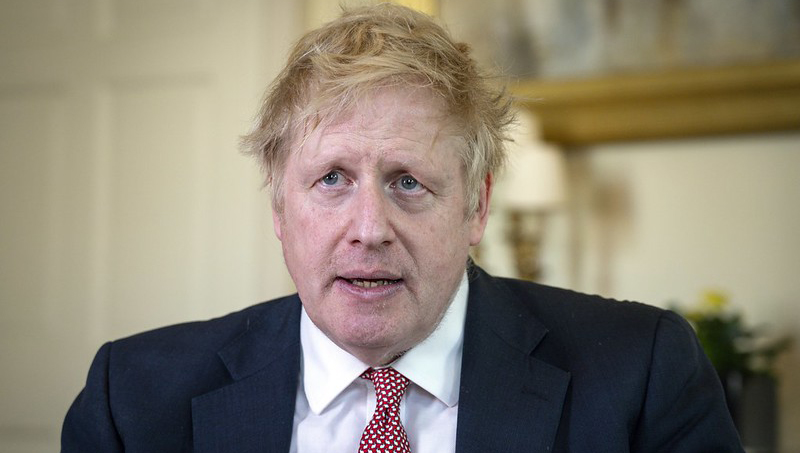UK stock markets have been buoyed by news of Boris Johnson’s resignation but the pound has proved more volatile, indicating “it’s not quite the end to the political stalemate”, remarked one industry commentator.
The BBC reported earlier this morning Johnson had agreed to step down but wanted to stay on as prime minister until a new Tory leader is elected at the party conference this autumn.
His departure was seen as inevitable after a wave of cabinet ministers resigned, including chancellor Rishi Sunak and health secretary Sajid Javid.
The FTSE 100 jumped by 1.2% off the back of the news, with miners Anglo American (7.6%), Glencore (7%) and Antofagasta (6.3%) posting the biggest gains, followed by BP (5.3%).
The more-domestically focused FTSE 250 was up around 0.8%.
Sterling also lifted against the dollar, climbing to $1.20 before dipping back slightly.
“The row over whether the prime minister should stay or go is over,” Hargreaves Lansdown senior investment and markets analyst Susannah Streeter said, but “the pound’s wavering path indicates that traders believe it’s not quite the end to the political stalemate”.
She said: “Johnson is set to stay in position until the autumn, and the battle is already commencing over who will be the next leader. There is a cacophony of problems on the next prime minister’s plate, not least the cost-of-living crisis causing voters so much financial pain.
“Plus, the trading relationship with the EU is still fraught with difficulty given the bill to amend the Northern Ireland protocol.”
Outlook for the pound remains ‘bleak’
Chris Beauchamp, chief market analyst at IG Group, agrees sterling is likely to remain volatile, despite the clarity from Number 10.
“The pound has been looking for any excuse to bounce against the dollar following its drubbing lately. Boris’ decision to go removes at least some of the uncertainty, and means that a snap election is off the cards. Longer term, the outlook is still bleak for the pound, so this bounce is unlikely to last.”
Schroders senior European economist and strategist Azad Zangana said it is unlikely the leadership contest for the Conservative party is to be decided before the autumn, creating a “lengthy period of uncertainty over the direction of the country and economy”.
“Johnson’s government often leaned towards populist policies, and while he will always be remembered for Brexit, recent fiscal policy also followed a similar approach.
“This may have boosted growth in the near term, but also contributed to higher inflation and higher public borrowing. The recent decisions to increase corporation taxes instead of personal or sales taxes is just one example.
“Looking ahead, the outlook hinges on who Johnson’s replacement will be,” he continued.
“A return to traditional Conservative politics will probably bring about some austerity over the next few years, but also a return to business-friendly policies.
“However, another populist politician could lead to more of the same approach for the economy.”











